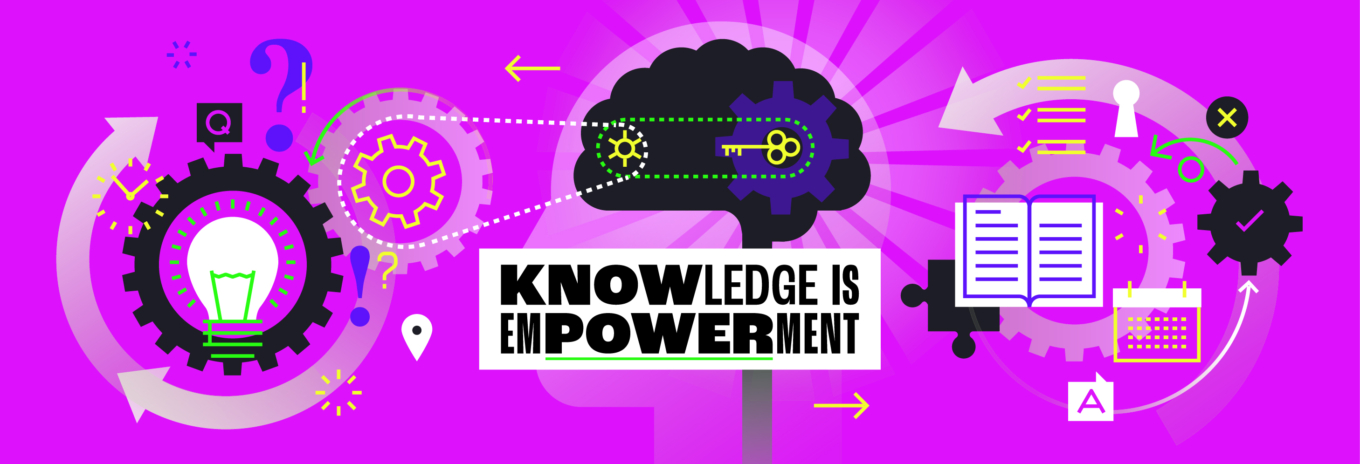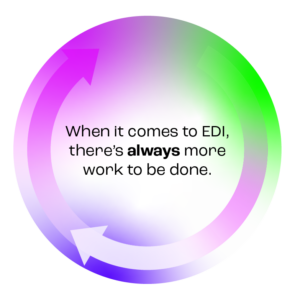Lessons and learnings from a master’s degree in Global Cultures, and a few quick wins too… 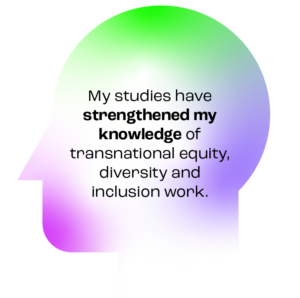
The pub up the road, trains, airports, my desk, my sofa (on Sundays), Bristol Library, my parent’s house, café window seats, any window seat for that matter…
Over the last 18 months, these spaces have become my study spots as I work towards completing a master’s degree in Global Cultures.
My learning experience so far has been both empowering and challenging. My studies have strengthened my knowledge of transnational equity, diversity and inclusion work – something I’ve been passionate about since working with UN Women UK and Shared Lives, and for the last three years, the fabulous folk at Alive.
Diversity and Inclusion in Practice 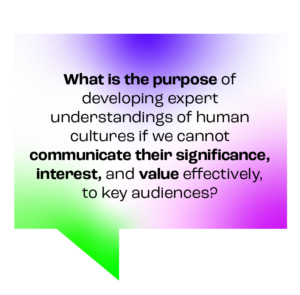
In this module, we explored and analysed the language used in policies and initiatives across various contexts and industries. We examined how interventions like unconscious bias training fall short when it comes to systemic inequality and individual accountability. Through an intersectional lens, we gained expertise on the dynamics of knowledge, power, and discrimination and applied this to real-life case studies.
It’s so rewarding to share this insight with our wonderful clients. This module in particular helped me to develop and deliver these inspired about inclusion workshops!
Communicating global cultures 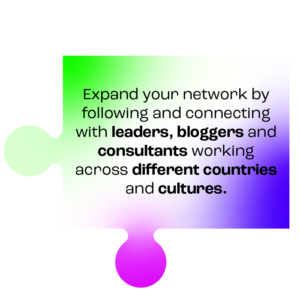
What is the purpose of developing expert understandings of human cultures if we cannot communicate their significance, interest, and value effectively, to key audiences like colleagues, leaders, the government, and other key stakeholders? Here we learned about the digital realm of global cultures and engaged in key debates about accessibility, written and visual discourses, assumptions and accommodations, inclusion and exclusion, geographical and linguistic divides, and inclusive curation.
From tackling microaggressions in the workplace and introducing global inclusion and belonging programmes, to creating demographic data collection campaigns, I love applying my studies to the work we’re doing at Alive, every day.
Gender and Globalisation: Transhistorical and Transcultural Approaches
Gender studies and queer studies are my jam. We studied gender and globalisation through historical perspectives of imperialism and colonialism as well as contemporary pop culture and creative industries. We explored diverse cultural case studies, discussing themes like gender ideologies, gendered violence, and politics. We looked at how gender and sexuality intersect with various social categories such as race, class, disability, and sexual orientation in every day online transnational contexts.
I put my passion for music into action for this module and crafted a visual essay about the extent to which contemporary women pop artists creatively use their platforms to champion intersectional fourth-wave feminism and call into question gendered, racial and ethnic stereotypes.
From Race and Ethnicity in a Global Context to Creative Leadership, each module offers something new for me to bring to my approach to comms projects and campaigns.
If you want to build knowledge and confidence, ask challenging questions and make a positive difference too, here are some quick wins to empower you:
- Listen to, read and watch the experts. Here’s my recommended list of powerful podcasts, brilliant books and valuable videos to get you inspired about inclusion.
- Assess your surroundings and take action to ensure easy access for people with different kinds of bodies, mobility, assistive devices and ways of thinking. Carefully consider your events and ask colleagues what they need – this accessible exhibitions guide has a great checklist!
- Expand your network by following and connecting with leaders, bloggers and consultants working across different countries and cultures. Through my course, I get to connect with and listen to people from across the globe and it’s so helpful to learn about their life experiences, ways of working and thoughts on how we can create fairer, kinder, more equitable workplaces, societies and nations.
- Read your organisation’s EDI policy and ask yourself if it’s communicating an honest picture. Use this blog post about Sara Ahmed to get comfortable with uncomfortable questions and reduce the gap between saying and doing.
- Have a chat with us! Whether you’re looking for support in building and bringing your EDI strategy to life, or simply need someone to bounce ideas off, please get in touch.
In six months, the pub will be the pub again and window seats will be for day dreaming, because I’ll have completed my master’s degree in Global Cultures. But that doesn’t mean the learning stops – when it comes to EDI, there’s always more work to be done.
By Lauren Castle for Alive!

